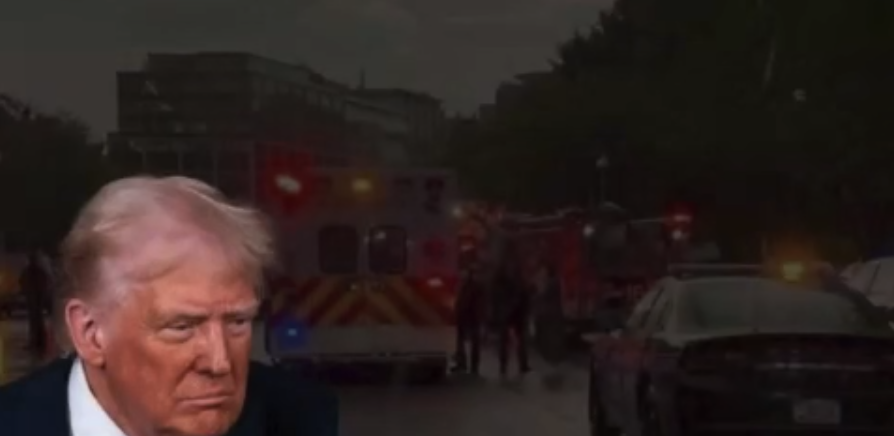Congress Braces for Crime Bill Debate as Trump Expands D.C. Crackdown
Lawmakers are gearing up for what could become one of the most consequential criminal justice debates in years, as President Donald Trump prepares to send a sweeping crime bill to Capitol Hill. The legislation, which the president has framed as part of his broader effort to restore order in Washington, D.C., is expected to serve as a blueprint for addressing crime in other major Democratic-led cities.
Trump Signals New Crime Legislation
Speaking Wednesday, Trump confirmed that the White House is finalizing a legislative package focused initially on the nation’s capital. He described the effort as a model for “making the district a beacon for other blue cities,” though he offered few concrete details about what the bill would contain.
“We think the Democrats will not do anything to stop crime, but we think the Republicans will do it almost unanimously,” Trump told Fox News. “So we’re going to need a crime bill that we’re going to be putting in, and it’s going to pertain initially to D.C.”
The president added that the measure would seek “a relatively small amount of money” to repair streets and revitalize the city, part of his broader campaign to remake the capital as what he has repeatedly called “the shining city on the hill.”
White House and Allies Move Quickly
Within hours of Trump’s remarks, Sen. Lindsey Graham (R-S.C.) announced he had spoken with the president, Attorney General Pam Bondi, and senior White House aides about how Congress could bolster federal efforts to combat crime in Washington.
Bondi, in a statement to Fox News Digital, said the administration remains committed to working with the Metropolitan Police Department (MPD), federal law enforcement, and Congress to “address the scourge of violent crime” in the city.
“At the direction of President Trump, this Department of Justice will continue to work with MPD, federal law enforcement and Congress to address the scourge of violent crime in Washington, D.C., and ensure the safety of all Americans visiting or living in our nation’s capital,” Bondi said.
Graham confirmed that the White House is preparing to send a legislative proposal to both him and Sen. Katie Britt (R-Ala.), chair of the Senate Appropriations Subcommittee on Homeland Security.
“Together, we will try to shepherd the D.C. Security Fund through Congress to give President Trump the resources he will need to improve the safety and quality of life in our nation’s capital,” Graham posted on X. “Every American should be behind this effort to make Washington, D.C., clean and safe so that it can truly become the shining city on the hill.”
Legislative Timing and Political Hurdles
It remains unclear whether Trump’s proposed crime package will be attached to an upcoming spending bill or introduced as a standalone supplemental measure. Congressional aides say the timing of the proposal could complicate an already crowded legislative calendar.
Congress is not set to reconvene until after Labor Day, leaving lawmakers with a tight window to address multiple high-priority issues before the Sept. 30 government funding deadline. Among them: a separate request expected from the White House seeking to extend Trump’s temporary authority over the D.C. police department.
Under federal law, the president’s direct control over the Metropolitan Police Department lasts just 30 days unless extended by Congress through a joint resolution.
Republicans broadly support granting Trump more time to continue his D.C. crackdown, but such a measure would likely require 60 votes in the Senate — a high bar in the closely divided chamber. Democratic leaders have already signaled they will not support any effort to further expand Trump’s control over local law enforcement in the capital.
“There’s no appetite among Democrats to cede more power to this president — especially over local policing,” one Democratic Senate aide told Fox News.
A Broader Test of Trump’s Crime Agenda
The anticipated crime bill represents a central pillar of Trump’s broader domestic agenda, which has focused heavily on public safety, law enforcement empowerment, and what the administration describes as the “restoration of order” in American cities.
The proposal is expected to pair enhanced federal funding for policing and urban cleanup efforts with stricter sentencing provisions and expanded powers for federal agencies operating in D.C.
Whether Congress embraces or resists the measure could have major implications not only for Washington but for Trump’s broader goal of extending federal authority into local jurisdictions — a move critics warn could test the limits of executive power.
For now, one thing is certain: the coming debate over crime in the nation’s capital will serve as both a political and constitutional flashpoint, setting the stage for another showdown between the Trump administration and its Democratic opponents over how — and who — should define public safety in America.

